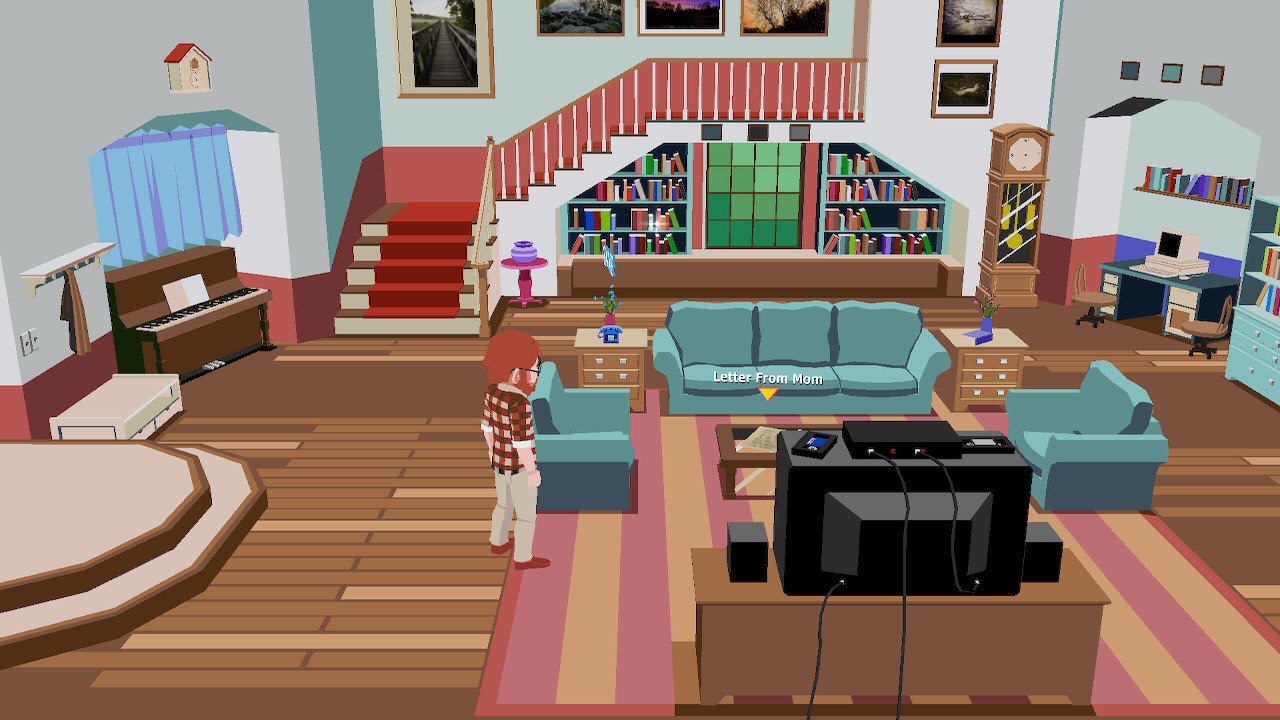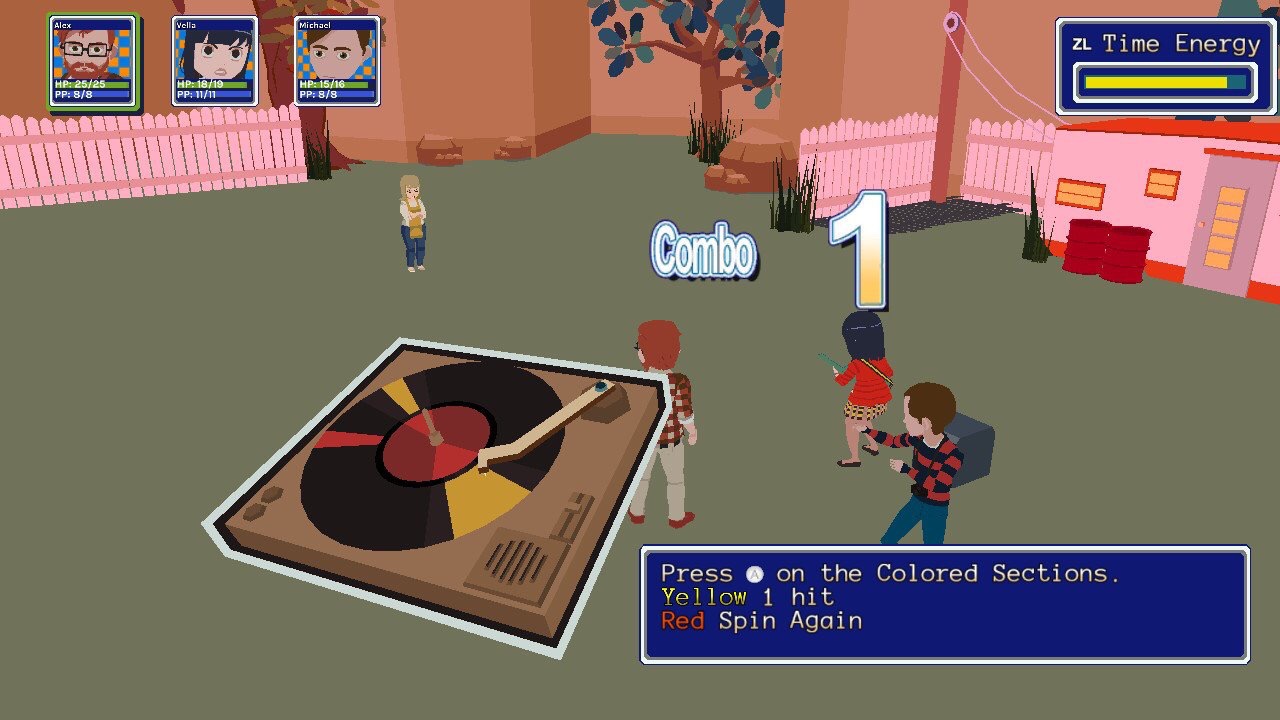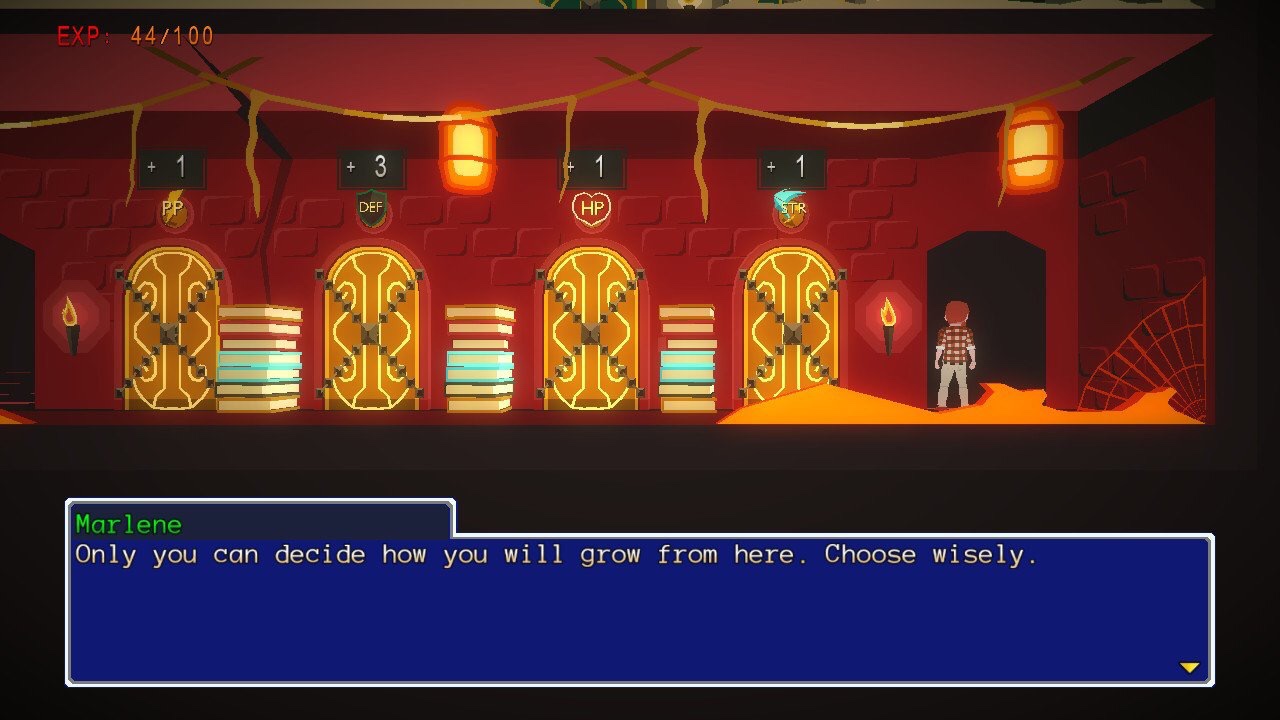YIIK: A Postmodern RPG presents itself as one of the most intriguing turn-based games in recent memory. A soundtrack produced with the help of Toby Fox and Hiroki Kikuta, gameplay inspired by the Persona franchise, and a surreal plot that follows the events of Y2K with plenty of nostalgic 90s references, it seems like a perfect recipe for a great game. Unfortunately, the game isn’t able to live up to the hype around it and falls flat in many different aspects. Ackk Studios’ YIIK is riddled with redundant gameplay, long load times, and other features that make this title feel like more of a chore than an enjoyable experience.

Intriguing Approach
At first glance, this may seem like an incredibly fascinating take on the RPG genre. Players are thrown into the world of Alex, a recent college graduate who is headed back home. After arriving in town, his mother sends him to the store to grab some groceries for her but a quick detour to chase after a cat sends his whole world awry. On paper, it sounds a bit far-fetched and random yet it feels a lot more fluid when played through. The plot is very interesting and kept me driving through the game to see how it unwrapped, despite its weaknesses. It’s also filled with a vast amount of references to the 1990s. For instance, Alex’s own home is modeled after Danny Tanner’s from Full House. These are fun little nods to the decade while not overly relying on them to sell this product, which is much appreciated.
Characters and your relationship with them are also key aspects of the title. There aren’t dialogue choices though, which is unfortunate because it would’ve been nice to define how your version of Alex should be. Alex comes off as a bit of a hipster snob that holds himself to a higher status since graduating. He reaks of narcissism while also being pretentious, so much so that it tends to hold him back from being any bit likable. Plus, he, for some reason, needs to narrate every single action in the game. It got to a point where I was begging him to shut up just for a second. Other figures that make an appearance are more enjoyable but their dialogue can feel off. Certain scenes don’t feel natural and look like they’re trying too hard to appeal to the person staring at the screen rather than emulating an actual human experience.

Drawn-Out Gameplay
In terms of combat, the game takes a mini-game style approach, similar to Saturday Morning RPG. Unlike that game, though, every single enemy encounter feels like a chore. Alex’s main weapon is his favorite vinyl, which he uses to swing at enemies. For the vinyl to land any sort of hit, players have to press A on the yellow section of the record. This may appear like a simple task, but it’s much more tedious because of just how fast the record spins. Along with the fast spinning, you’ll need perfect timing if you want to land more than one hit on the enemy. There is a time meter to help slow it down, but it gets used up quickly unless you turn on Assist Mode. When using Alex, I constantly wondered why I couldn’t land more than two combos. Well, that’s because that red area on the disc actually lets you spin one more time. Why the developer decided on the color red for this, which deterred me from even trying to touch it, I have no clue.
Other characters have unique styles of mini-games which all revolve around timed button prompts too. It would be fine if any of these dealt a favorable amount of damage but, alas here we are. Even after leveling-up constantly, it took way too long to take down the most simple of enemies. I would spend around five to ten minutes trying to tackle a few enemies and then receiving a bare minimum amount of experience points, making none of it feel worth it. Also, dodging an incoming attack can be one of the most frustrating parts of the game. When an enemy decides to lay a hit that is supposed to affect everyone in the party, you’ll have to defend them each separately by successfully pressing three buttons in rapid succession. Trying to do such a simple task ends up adding to the overall shortcomings found in this title.

Long Loading Times
Normally in an RPG, you are required to grind in order to get to higher levels, but it’s enjoyable because you’re having fun with the gameplay Here, this is much of the same except it takes way too long and isn’t that fun. Loading into any area feels unnecessarily long and slows down the game’s pace. Adding that in with the drawn-out battle sequences, you’re sure to wonder if YIIK is worth getting through at all. Entering from a town into an overworld or building is an absolute slog to do, as well. There’s also full voice acting, which is really nice, but reading takes so much less time to do. Constantly button mashing to speed up the seemingly endless cutscenes was a consistent task.
Another game that YIIK takes inspiration is the Persona franchise. It approaches dungeons much like the latter series but goes further along those lines in its leveling up section. Basically, you call a number on the phone to go into your own brain which then helps learn new skills based off the XP earned. This “Mind Dungeon” is the only way to level up and is hands down the worst feature of the game. You’ll have to go through multiple separate menus and doors to properly level up how you want. It made me not want to even level up because of how tedious and pointless this entire section was. The game would benefit greatly if this felt more natural but instead is incredibly cumbersome. As a matter of fact, everything that required menus was overdone. Talking, battling, traveling, even saving can feel like an eternity.

I so desperately wanted to like this game when I first started downloading it. Its soundtrack, graphics, and narrative are very well done, but playing through YIIK: A Postmodern RPG is the true challenge. There definitely needs to be more work done to this formula if a sequel is even pondered. If you’re able to get past the glaring flaws, you can find over 30 hours of content and two different canonical endings. Just be prepared for the monotonous journey of padded gameplay that lies ahead.
Thank you to Ackk Studios for providing us with a review copy of the game.
- Interesting Aesthetic
- Fascinating Narrative
- Enjoyable Soundtrack
- Drawn-Out Gameplay
- Long Loading Times
- Tedious Leveling System
